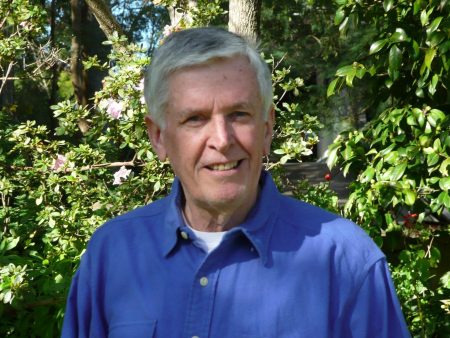John Tulloh. Europe: The political impact of a dead Syrian.
November 20, 2015
Ahmed al Mohammad may have a greater impact on Europe than his evil terrorist deeds did in Paris last week. It appears he was a Syrian asylum-seeker who, according to Greek records, passed through Greece last month and made his way through the Balkans to join his cohorts in France. He satisfied whatever checks there were and was sent on his way with tens of thousands of others. We will never know what happened after then because he died in the mayhem.
With the number of asylum-seekers pouring into Europe numbering 7000 a day, many will be wondering how many other fifth columnists like Al Mohammad are in their midst. It will fuel an emerging pan-European backlash against the influx of hundreds of thousands of refugees from Syria, Iraq, Afghanistan and elsewhere, many of them military-age Moslem males, says David Kilcullen, the counter-insurgency and intelligence specialist.
It also will be further fodder for European countries wanting to justify closing their borders or putting up razor wire or simply refusing to take in refugees. They will find willing allies in the form of the growing influence of right-wing parties which have prospered with their anti-immigration rhetoric.
Across the Atlantic, the new Speaker of the U.S. House of Representatives, Paul Ryan, has called for a total suspension of the program to accept Syrian refugees.
U.S. officials quoted by the Wall Street Journal said the Paris attacks could reinforce perceptions of many Europeans that the refugee flows are bringing in terrorists. It is going to feed a backlash, it is going to feed into concerns people have over refugees. Even the alleged leader of the attacks boasted in the Islamic States journal last February of having travelled through Europe unnoticed.
A recent international Gallup poll quoted by the Washington Post said 52% of Europeans wanted immigration decreased. That was more than any other region in the world and twice as much as Australia. Understandably, this has become a matter of growing concern among the European electorate. Photos of hundreds of strangers from the Middle East and beyond snaking their way across European fields must cause alarm for their very anonymity.
While the majority will be refugees and others will be economic opportunists, the law of averages says jihadists will have melted in among the throng. The refugees also will include young men who, failing to find the prosperity they think awaits them, will become disaffected and become easy prey for Islamic extremists just as the Brussels-based terrorists who brought carnage to Paris last week were.
For genuine refugees, their plight has become even harder with the inevitable growing suspicion of anyone connected with Islam. The new Polish government has reneged on its predecessors EU promise to take in asylum-seekers. Others in East Europe are beginning to say not in our back yard. Scandinavia, a long-time welcome mat for people in distress, has seen a rise of anti-immigration electoral sentiment in all four of its countries. Even in Switzerland, which is barely affected, voters gave a bigger tick than usual to right-wing candidates.
Europe faces a huge dilemma. Firstly, how to absorb the current wave of asylum-seekers and how to weed out potential jihadists. Secondly, whether to revoke the Schengen Agreement allowing free movement within EU members. Thirdly, how to handle the anticipated next wave of tens of thousands of asylum-seekers and refugees seeking refuge, safety and prosperity.
A few days ago EU leaders gathered in Malta to discuss financial incentives to African countries in return for curbing the exodus of their citizens to attempt the Mediterranean crossing to Europe. The talks ended in disarray. The EU wants Turkey to do more to stop the flow through there. But Turkey in return wants more than the EU is prepared to concede. The U.S. and Russia are scrambling to set up negotiations early in the new year to reach a political settlement in Syria, the source of the majority of the refugees. Given the disparate nature of the different Syrian parties involved and the obduracy of the Assad regime, the chances of success must be remote.
Even Islamic State is trying to help with a propaganda blitz to discourage refugees fleeing to Europe, warning of the debauched hell which awaits them. It is really concerned about the exodus of professionals who are desperately needed to help the self-styled caliphate survive.
If anything, EU complacency has much to answer for. Its border controls have been almost non-existent. The EU partnership has amounted to little when it counts the most with many members willingly pushing refugees into other countries instead of processing them. Intelligence has been deficient. Some of its members are running for cover rather than sharing the burden of the mass movement of the greatest number of people in the EUs history. It is as if EU members regarded it all as another members problem.
For refugees, there is hope. Europes birth rate is shrinking dramatically. This and the flight of young people from countries with high unemployment mean immigrants are wanted like never before. According to the Guardian, Europe desperately needs more young people to run its health services, populate its rural areas and look after its elderly because, increasingly, its societies are no longer self-sustaining.
Whatever happens, the social make-up of Europe is irrevocably changed.
FOOTNOTE. France is no stranger to terrorism and bloodshed. Back in the early 60s, French settlers opposed to Algerian independence inflicted a wave of bombings, assassinations - including several attempts on President de Gaulles life - and even derailed a high-speed express train, killing 28. A pro-independence organisation was just as active with its bombings. When 30,000 supporters demonstrated on the streets of Paris, the police opened fire and, officially, 40 people were killed whereas estimates have put the figure as high as 200.
John Tulloh had a 40-year career in foreign news.
